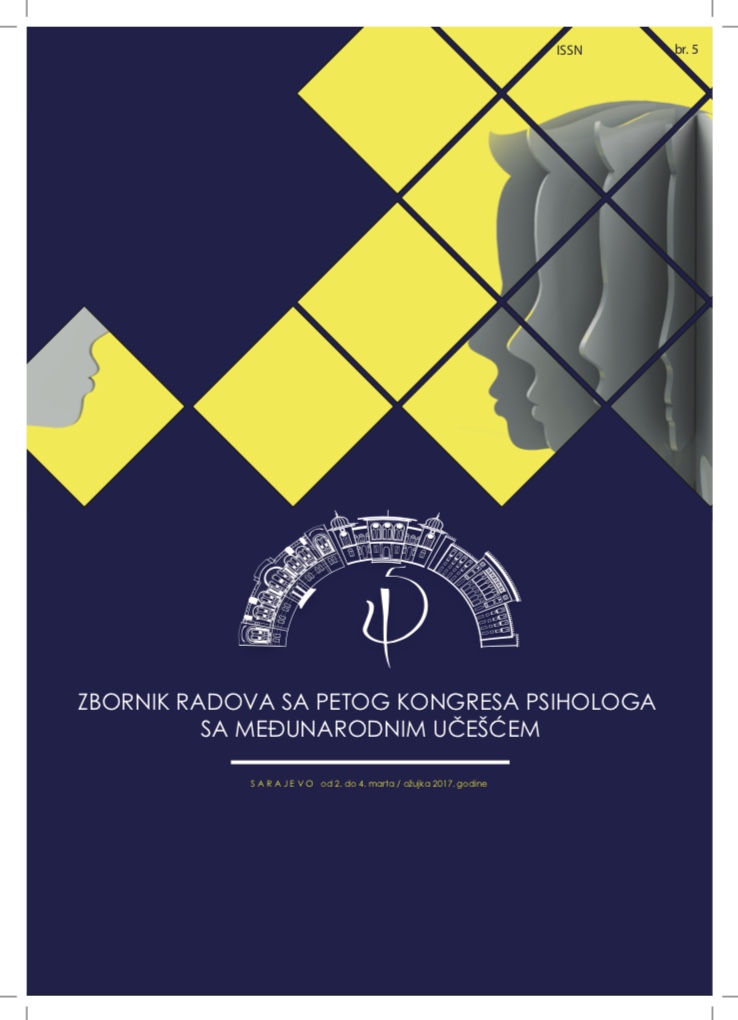Metrijske karakteristike Rosenbergove skale samopoštovanja kod mlađih i starijih adolescenata
Metric characteristics of the Rosenberg Self-Esteem Scale among adolescents
Author(s): Đenita Tuce, Nina Hadžiahmetović, Jadranka Kolenović-Đapo, Indira FakoSubject(s): Psychology
Published by: Logotip
Keywords: Rosenberg Self-Esteem Scale; metric characteristics; confirmatory models;
Summary/Abstract: The aim of the research was to assess reliability and validity of the Rosenberg Self-Esteem Scale (RSES) on samples of younger and older adolescents. Participants were 389 students (211 university students and 178 primary school students). The average age of students and primary school students was 22.16 (SD=1.36) and 12.39 (SD= .95), respectively. Principal component analysis singled out two factors that accounted for 61 % (students) and 48 % (school students) of the global self-esteem variance. A predetermined one-factor solution explained 50 % (students) and 34 % (schools students) of the global self-esteem variance. Cronbach's alpha was .88 and .77 in the student and the primary school sample, respectively. The global self-esteem model on primary school students had the best fit, after 11 year olds were left out (χ2(27)= .979, p= .494; GFI= .964; RMR= .047; RMSEA= .000). The RSES criterion validity was tested based on correlations with parental acceptance-rejection, friendship quality, and peer attachment (students), and on correlations with the Big Five traits (school students). Convergent validity with the Coopersmith self-esteem inventory was also tested on younger adolescent sample. The results show that RSES has good metric characteristics and it can be applied as the global self-esteem measure in further research.
Journal: Zbornik radova Kongresa psihologa Bosne i Hercegovine
- Issue Year: 2019
- Issue No: 5
- Page Range: 33-63
- Page Count: 31
- Language: Bosnian

